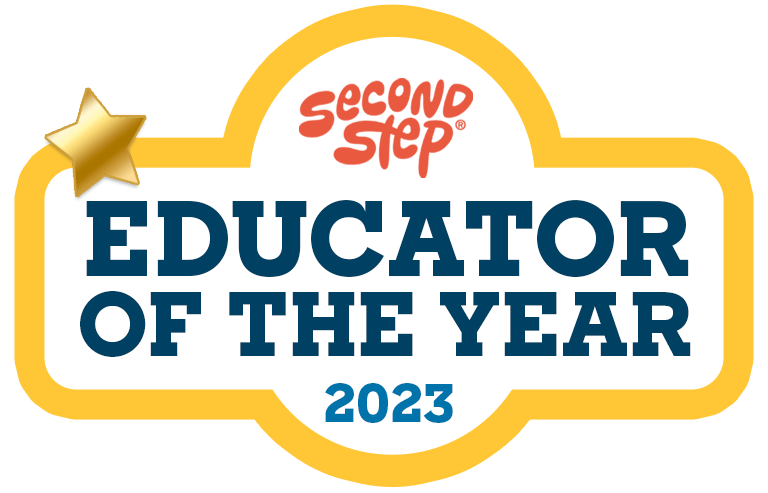2022–2023 Second Step® Educator of the Year Awards

Celebrating Excellence in SEL
Every day, educators across the country use Second Step® social-emotional learning (SEL) programs to build safe, supportive environments where their students and colleagues can thrive.
This year, we celebrated the extraordinary work of the following Second Step educators by recognizing their achievements and amplifying their stories so others can learn from their experiences.
2023 Award Winners

Nerwin Balilu
Grades 6–8 Resource Teacher, Arizona

Joann Chan-McShane
Resource/Special Education Teacher, Illinois

Marlo Diaz Davis
Culture and Climate Coach, California

Ali Drutowski
Grade 8 Teacher, Minnesota

Madison Hunt Wilfong
Grade 6 Teacher, Georgia

Stacie Paruta
Special Education Teacher, New Jersey

Neha Singh
Kindergarten Teacher, Virginia

Carrie White
Grade 2 Teacher, New York

Marie Williams
Grades 3–4 Teacher, California

Katie Wohlford McCracken
School Counselor, North Carolina

Second Step® Educator Showcase
We had an incredible time celebrating this year’s winners and the work of all Second Step educators at our live showcase. If you missed the event, you can view a recording of the highlights!
Judging Criteria
All nominations were judged by a panel of Committee for Children staff on the following criteria.
Impact
There is qualitative or quantitative evidence that the nominee’s use of Second Step programs has had a positive effect on students’ SEL, classroom culture, school climate, or staff well-being.
Innovation
The nominee demonstrates the ability to ensure there are strategies in place for systemic implementation to thrive. Where strategies do not yet exist, the nominee has advocated for or created solutions to address these gaps so all levels of the system are supported.
Generalization
The nominee actively integrates SEL into their work with students or colleagues outside of Second Step lesson time.
Learner-Centered Approach
The nominee demonstrates an ability to build a more equitable classroom or school community by incorporating equity components—including explicit attention to the culture, history, values, assets, and needs of the community—into SEL principles, strategies, frameworks, and implementation tools.

2022–2023 Award Timeline
- February 1: Nominations open
- May 12: Nominations close
- May 26: Finalists notified
- June 12: Winners announced
- August 22: Second Step Educator Showcase

Eligibility Requirements
Nominees must be currently employed educators working in a school or district that uses one or more Second Step social-emotional learning programs (teachers, counselors, principals, social workers, paraeducators, SEL coaches, and support staff are all eligible for the awards).
Nominees must live and work in the United States.
Nominees must be over the age of 18.
Read the full contest rules.